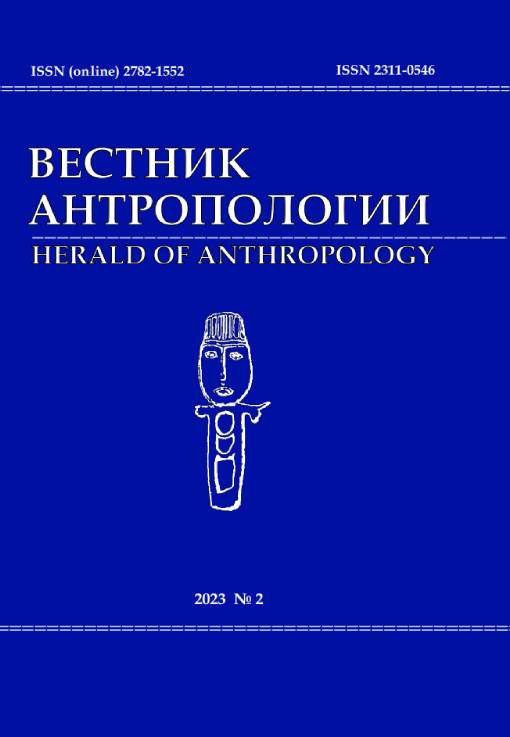Православные регламентации празднично-игровой культуры русских: индивидуально-личностные факторы
DOI: 10.33876/2311-0546/2023-2/124-140
Ключевые слова:
антропология религии, празднично-игровая культура русских, рецепция христианства народным сознанием, индивидуально-личностные факторы формирования традиции, механизмы трансформации культурных традицийАннотация
В отечественной науке существует постоянный интерес к празднично-игровой культуре русского народа, к процессам ее сложения и причинам вариативности и локальности. Кроме очевидных факторов, определяющих облик культуры (географического, социально-экономического, политического), существуют и скрытые, которые оказывают на нее не менее важное влияние. В статье на основе опубликованных, архивных, а также полевых материалов автора рассматривается трансформация празднично-игровой культуры русских в результате рецепции христианского вероучения, при этом акцент делается на описании индивидуально-личностных факторов и оценке их роли в появлении новых культурных явлений и форм. Имеющийся корпус источников позволяет детально реконструировать этот процесс в имперский период, когда в крестьянском сознании уже несколько веков доминировало православное мировосприятие и мировоззрение. Эту эпоху можно расценивать как особый, более продвинутый по сравнению с предыдущим временем этап рецепции, содержанием которого было не первоначальное ознакомление с христианской религией, а уже более глубокое ее освоение и выстраивание на этой основе повседневной жизни. В рамках микроисторического подхода анализируется деятельность многочисленной социальной группы — сельского духовенства, которое ближе всех стояло к крестьянству и могло непосредственно воздействовать на сознание большинства населения страны, формируя его мировоззрение. Автор рассматривает методы воздействия деятелей Церкви, благодаря которым христианские постулаты и регламентации поведения были восприняты на «низовом» уровне и привели к трансформациям в сфере празднично-игровой культуры. Таким образом, анализ индивидуальной деятельности и описание конкретных событий повседневной и праздничной жизни выводит на понимание макроисторических процессов.






















